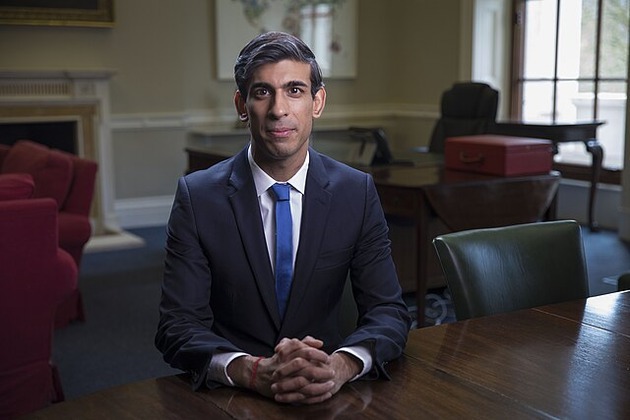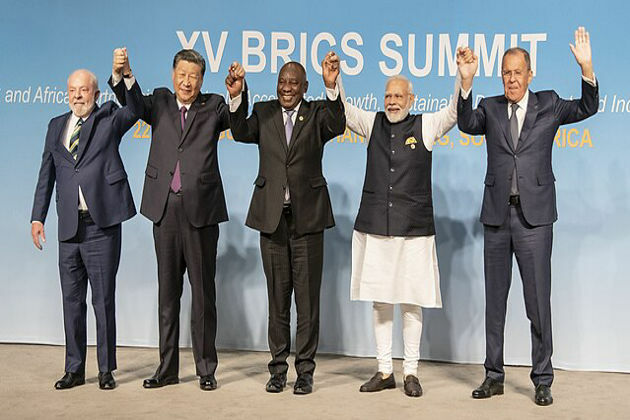Spending review: key workers on zero-hours contracts overlooked again
The Conversation
27 Nov 2020, 00:12 GMT+10

To deal with the "economic emergency" caused by the COVID-19 pandemic, Chancellor Rishi Sunak announced a series of measures at the recent spending review to try and stabilise the economy. One of the central pillars of the review focused on jobs and help for low-paid workers - with an increase in the national living wage or minimum wage from April 2021 of 19p to Pound 8.91 an hour.
While these may sound like positives, the announcement did not deal with any of the deep-rooted structural issues around low-paid employment in the UK. In particular, those workers on zero-hours and highly variable short-hours contracts, whose employment is uncertain and precarious.
This seems very shortsighted given the fact that many people on zero-hours contracts are "key workers" - employed in the care sector, retail and cleaning. And these are jobs that have proved to be vital to keep the country going in the face of the pandemic.
Zero-hours contracts have become a prominent and permanent feature of the labour market in the UK. Under these types of contracts, employers are not obliged to provide any minimum working hours, and the worker does not have to accept any work offered.
Zero job security
It's estimated that prior to the outbreak of COVID-19, close to 1 million workers were employed on a zero-hours contract in their main job. And this is a figure that has risen throughout the pandemic.
Our research is the first UK study to focus on workers in multiple low-paid jobs. And we were surprised and alarmed to find a number with four, five, six and even seven different jobs.
We interviewed 50 low-paid workers in multiple employment in the regions of Yorkshire and the north-east of England. We found 21 were employed on zero-hours contracts, with a further eight retail workers employed on highly variable short-hours contracts.
In terms of education, 12 of these workers had A-levels, nine had degrees and three even had master's degrees. All of these workers had multiple jobs and zero-hours contact work due to low-wages, insufficient working hours and insecure employment.
Workers we interviewed on zero-hours contracts could work from zero to 60 hours a week. Similarly, those employed in the retail sector could work from as few as four, six, eight or ten hours a week, right up to more than 40 hours. Many felt pressurised into accepting any hours offered, as they feared that turning down shifts would mean that they would not be offered anymore work - as one interviewee, Jack, explained:
Many struggled financially due to irregular hours and spoke of "panicking" and "scrambling" to acquire sufficient hours to make ends meet. Ella who has three zero-hours contact jobs - two in education and one in social services - told us how challenging this can be:
Finding 'good work'
It wasn't that long ago that we were all being encouraged to clap for carers and speaking about how we wanted the world to change for the better after the pandemic. This dream of a more sustainable economy should not be forgotten in favour of continuation of low paid and insecure employment.
This comes at a time of increased focus as to what good work or a good job should actually look like. For an employer, this could mean paying the real living wage, guaranteeing working hours, offering training and career development opportunities and supporting people's work-life balance. And from the employee's perspective, fair treatment at work along with guaranteed working hours and pay would go a long way.
All of the workers we interviewed wanted employment stability and security, with better pay and good terms and conditions of employment. Many sought standard employment of "one decent full-time job" with stable hours. Control over working time was also a key issue - to have guaranteed working hours and flexibility to spend quality time with family and friends.
Employment security and income stability would mean that these key workers would not have to constantly worry about income, working hours and being able to pay bills. Indeed, the people we spoke with wanted dignity at work and trade union representation, which is a lot more than the 19p an hour offered in the spending review.
Authors: Andrew Smith - Senior Lecturer in Human Resource Management and Employment Relations, University of Bradford | Jo McBride - Associate Professor (Reader) of Industrial Relations, Work and Employment, Durham University 
 Share
Share
 Tweet
Tweet
 Share
Share
 Flip
Flip
 Email
Email
Watch latest videos
Subscribe and Follow
Get a daily dose of Haiti Sun news through our daily email, its complimentary and keeps you fully up to date with world and business news as well.
News RELEASES
Publish news of your business, community or sports group, personnel appointments, major event and more by submitting a news release to Haiti Sun.
More InformationInternational
SectionFaulty IT system at heart of UK Post Office scandal, says report
LONDON, U.K.: At least 13 people are believed to have taken their own lives as a result of the U.K.'s Post Office scandal, in which...
Travelers can now keep shoes on at TSA checkpoints
WASHINGTON, D.C.: Travelers at U.S. airports will no longer need to remove their shoes during security screenings, Department of Homeland...
Rubio impersonator used AI to reach officials via Signal: cable
WASHINGTON, D.C.: An elaborate impersonation scheme involving artificial intelligence targeted senior U.S. and foreign officials in...
Warsaw responds to migration pressure with new border controls
SLUBICE, Poland: Poland reinstated border controls with Germany and Lithuania on July 7, following Germany's earlier reintroduction...
Deadly July 4 flash floods renew alarm over NWS staffing shortages
WASHINGTON, D.C.: After months of warnings from former federal officials and weather experts, the deadly flash floods that struck the...
Putin fires transport chief, later found dead in suspected suicide
MOSCOW, Russia: Just hours after his sudden dismissal by President Vladimir Putin, Russia's former transport minister, Roman Starovoit,...
Business
SectionEx-UK PM Sunak takes advisory role at Goldman Sachs
NEW YORK CITY, New York: Former British prime minister Rishi Sunak will return to Goldman Sachs in an advisory role, the Wall Street...
Gold ETF inflows hit 5-year high as tariffs drive safe-haven bets
LONDON, U.K.: Physically backed gold exchange-traded funds recorded their most significant semi-annual inflow since the first half...
PwC: Copper shortages may disrupt 32 percent of chip output by 2035
AMSTERDAM, Netherlands: Some 32 percent of global semiconductor production could face climate change-related copper supply disruptions...
U.S. stocks recover after Trump-tariffs-induced slump
NEW YORK, New York - U.S. stocks rebounded Tuesday with all the major indices gaining ground. Markets in the UK, Europe and Canada...
Stocks slide as Trump unveils 25% tariffs on Japan, S. Korea
NEW YORK CITY, New York: Financial markets kicked off the week on a cautious note as President Donald Trump rolled out a fresh round...
BRICS issues rebuke on trade and Iran, avoids direct US criticism
RIO DE JANEIRO, Brazil: At a two-day summit over the weekend, the BRICS bloc of emerging economies issued a joint declaration condemning...













